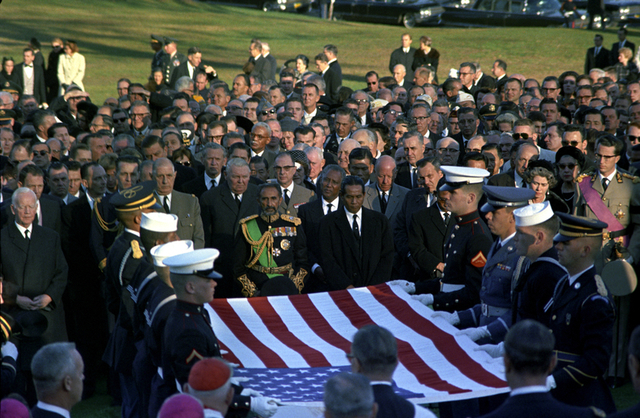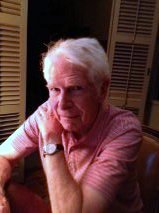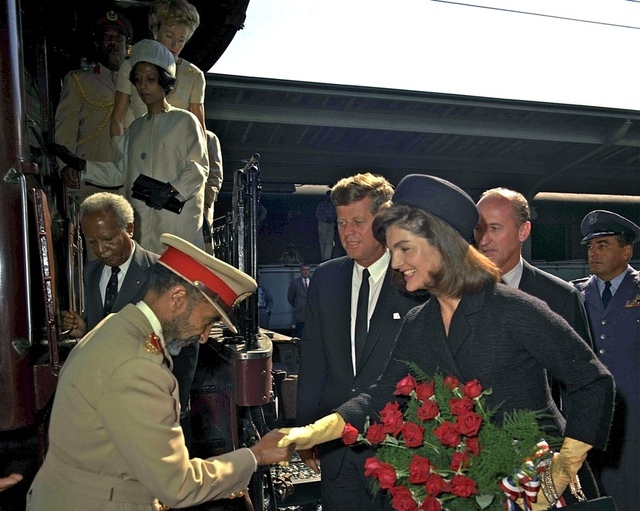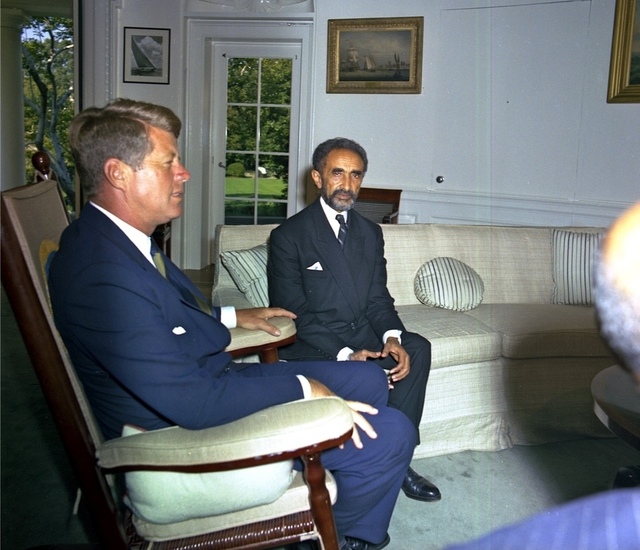ከመለስ በኋላስ?
(ተመስገን ደሳለኝ - የ ‘ፍትህ’ ጋዜጣ ዋና አዘጋጅ)
ጠቅላይ ሚኒስትር መለስ ዜናዊ ዕሁድ ዕለት ስርዓተ ቀብራቸው ተፈፅሟል፡፡ ለሁለት ሳምንት ያህልም
ለእልፍ አእላፍት አንገብጋቢ ጉዳዮቻችን ግርዶሽ ሆኖብን የነበረው ብሔራዊ ሀዘንም አብሮ አብቅቷል፡፡
ለቤተሰቦቻቸው እና ለዘመዶቻቸው መፅናናትን ከልብ እመኛለሁ፡፡ ስለዚህም ከቀብር መልስ ባሉ ሀገራዊ
ጉዳዮች ላይ መነጋገር መጀመር አለብን ብዬ አስባለሁ፡፡
(የአቶ መለስ ሞት በመንግስት በይፋ ከተነገረ በኋላ ጥቂት ባለስልጣናት እና አንድ ቱጃር ነጋዴም
ህይወታቸው እንዳለፈ በማህበራዊ ድረ-ገፆች በስፋት ሲዘገብ ቢቆይም ‹‹ሟቾቹ›› በኢቲቪ እየቀረቡ በአቶ
መለስ መሞት የተሰማቸውን ሀዘን ገልፀው አለመሞታቸውንም በገደምዳሜ አሳይተውናል፡፡ ይህ አንድ
እውነት ነው፡፡ አልፎ ተርፎም ሞቱ የተባሉት ቱጃር ነጋዴ ከጥቂት ቀናት በፊት ሰራተኞቻቸውን ሰብስበው
‹‹መለስን ከአንድ ወር ከአስራአምስት ቀን በፊት ብራስልስ ሄጄ ጠይቄዋለሁ፡፡ አልጋው ላይ ተኝቶ
በላፕቶፑ ስራውን እየሰራ ነበር፡፡ ረመዳን ነው አልዋሽም፣ ሞተ በተባለበት ጊዜ የውሸት ነው አልሞተም
ነበር›› ብለዋል፡፡ እንግዲህ ነጋዴው አቶ መለስን በጠየቁበት እና ሞታቸው በተነገረበት ጊዜ መካከል የ45 ቀን ክፍተት መኖሩን ልብ በሉ)
አስቀድሜ እንዳልኩት የአቶ መለስ መሞት ከተነገረ በኋላ ሞቱ የተባሉትን ጨምሮ በርከት ያሉ ባለስልጣናትን በኢቲቪ ያየናቸው ለስራ
ብቁ በሆነ አካላዊ ጤንነት ሳይሆን ገና በእግሩ መቆም ያልጀመረ ህፃንን ‹‹ወፌ ቆመች፣ አልወደቀች…›› እያልን ራሱን ችሎ እንዲቆም
ስናበረታታው እየተንገዳገደ ለመቆም በሚሞክርበት አይነት አቋቋም መሆኑም ሌላ እውነት ነው፡፡ መቼስ ምን ይባላል ‹‹እግዜር
ይማራችሁ›› ከማለት ውጭ፡፡
የሆነ ሆኖ የአቶ መለስ መሞትን ተከትሎ አንዳንድ ያልጠበቅናቸው ነገሮችን ለመታዘብ ችለናል፡፡ ‹‹መለስ አልሞተም››፣ ‹‹ጀግና
አይሞትም›› ከሚሉት ጀምሮ
‹‹አለ ገና አለገና አለገና
‹የእከሌም› አለገና››
(የሁለት ባለስልጣናትን ስም እየጠሩ) እያሉ እስከሚጨፍሩ ሰልፈኞች ድረስ በአዲስ አበባ ጎዳናዎች ስንሰማቸው የነበሩ ድምፆች ናቸው፡፡
የሀገሬ ህዝብ ስነ-ልቦናን መረዳት እንኳን ለእኔ ለጉምቱ የማህበራዊ ስነ-ልቦና ተመራማሪዎችም ቢሆን የዳገት ያህል አድካሚ ነው፡፡ መቼም
ከሰልፍ ጋር እንደሀበሻ በፍቅር የወደቀ ህዝብ ያለ አይመስለኝም፡፡ በጃንሆይ ላይ የተቃጣው የ1953 ዓ.ም መፈንቅለ መንግሥት ሲከሽፍ
መሰለፍ፤ ራሳቸው ጃንሆይ በ1966ቱ አብዮት ከቤተ መንግሥቱ ሲባረሩ ‹‹ሌባ፣ ሌባ፣ ሌባ…›› እያለ ለመስደብ መሰለፍ፡፡ …ለአብዮት
በዓል በአዲስ አመት የመጀመሪያው ቀን ማግስት መሰለፍ፤ መንግሥቱ ኃይለማርያም በ1969 ህዳር 13 ቀን በኢህአፓ የተደረገባቸው
የመግደል ሙከራ ከከሸፈ በኋላ ቆራጡ መንጌ በኢቲቪ ቀርበው ሁለት እጃቸውን ወደላይ ቀስረው ‹‹የበረደች ጥይት ሞኋይቴን
ከመምታቷ ውጭ ሙሉ ጤነኛ ነኝ›› እያሉ መንፏለላቸውን ተከትሎ በማግስቱ በአብዮት አደባባይ ለድጋፍ ሰልፍ ስንወጣ ወፍ
አልቀደመንም፡፡ በእንዲህ አይነት ሁኔታ ከተደረጉ ከየትኞቹም ሰልፎች እጅግ ምፀታዊ በሆነ መንገድ የሚታወሰኝ በወራት ልዩነት
የተደረገው የአስራ ዘጠኝ ስልሳ ዘጠኙ ሆሆታ ነው፡፡ ነገሩ እንዲህ ነው፡- በ1969 ሚያዚያ 23 የሰራተኞች ቀንን በደመቀ ሁኔታ ለማክበር
በ‹‹ኢማሌድህ›› ስም መኢሶን ባስተባበረው ሰልፍ (እነመንግስቱ ኃ/ማሪያምም ባሉበት) ላይ ድፍን የአዲስ አበባ ህዝብ ‹‹መኢሶን
ፓርቲያችን›› ሲል አብዮት አደባባይን በሰልፍ አጥለቀለቀ፡፡ ይህ በሆነ በ3ኛው ወር መኢሶን ከደርግ ጋር በፈጠረው ፀብ የአመራር አባሉ
ተደናግጦ ዋነኛ ምሽጉ የነበረውን የህዝብ ድርጅት ጽ/ቤትን ለቆ ከሀገር ለመውጣት ሲሞክር ሱሉልታ አካባቢ ተያዘ፤ ይህን ጊዜም
በአብዮት አደባባይ ‹‹መኢሶን ፓርቲያችን›› እያለ ‹‹ለውዳሴ›› የተሰለፈው ህዝብ
ተይዞ መጣ፤
ጠላ ሲጠጣ፡፡
በማለት እያላገጠ ጨፈረበት፡፡ በ1981 ዓ.ም ግንቦት 8 ቀን በመንግሥቱ ኃይለማርያም ወታደራዊ ጁንታ አገዛዝ ላይ የተሞከረው
መፈንቅለ መንግሥት በመክሸፉም ቅዳሜ ግንቦት 12 ቀን 1981 ዓ.ም. በአብዮት አደባባይ የተጥለቀለቀ የድጋፍ ሰልፍ ያደረገው ህዝብ፣
ግንቦት 13 ቀን 1983 ዓ.ም. መንግሥቱ ኃይለማርያም ከሀገር መፈርጠጡ በሬዲዮ ሲነገር ‹‹ሌባ፣ ሌባ…›› እያለ አደባባይ ከመውጣትም
አልፎ ግዙፉን የሌኒን ሀውልትን እስከማፍረስ ደርሷል፡፡ …ባለፉት ሃያ አንድ የአቶ መለስ እና የኢህአዴግ የጉልበተኝነት ዘመናትም እንዲሁ
በርካታ ‹‹ጉራማይሌ ሰልፎች››ን ታዝበናል፡፡ በ1997 ዓ.ም እና በ2002 ዓ.ም. የተደረጉትን ሁለት ሰልፎች ብናነፃፅር በኢህአዴግ ዘመን
ተመስገን ደሳለኝበተደረጉት መሀከል እጅግ ጉራማይሌ የሆነውን ሰልፍ እናገኛለን፡፡ በ97 ቅንጅትን ደግፎ የወጣው ህዝብ ከአምስት ዓመት በኋላ
የኢህአዴግን ጠቅላይ አሸናፊነት ለማብሰርም የወጣው ህዝብ ነው (ከትንሽ ማስተካከያ ጋር ማለትም፡- በመሀከል ባሉት ዓመታት ለአቅመ-
ፖለቲካ ወይም ምርጫ የደረሰውን የማህበረሰብ ክፍል ሳናካት ማለቴ ነው) ብለን ብንከራከር ቢያንስ የስነ-ህዝብ ፖለቲካ (Political
Demography) ያጠናን ዘዬ ይደግፈናል ብዬ አስባለሁ፡፡
ስለዚህም ሰሞኑን ለ‹‹ኑሮአችን›› እና ለበርካታ ወሳኝ የፖለቲካ ጥያቄዎቻችን ግርዶሽ ሆኖ የነበረውን የሀዘን ሰልፍንም እንዲሁ ከእነዚህ
እንደ አንዱ ቆጥረን ህይወትንም ፖለቲካውንም ማስቀጠል መቻል አለብን፡፡ (ሆኖም ከሰልፉ እና ከሀዘኑ ከመውጣቴ በፊት አንድ ጥያቄ
ላንሳ፡፡ ይኸውም የሀገር መሪ ሀዘኑን እንዴት ነው የሚገልፀው? መቼም በአደባባይ እንደጠቅላይ ሚንስትር ሀይለማርያም ደሳለኝ
‹‹ኡኡኡ…›› እያለ ግን አይመስለኝም፡፡ ይህ አይነቱ ተለምዶአዊ አለቃቀስ የሚፈቀደው እናቱ ጥላው ለጠፋችበት ህፃን ብቻ ነው፡፡ አቶ
መለስ ቢሆኑ ማንም ቢሞት እንዲህ አይነት ለቅሶ በቴሌቪዥን ካሜራ ፊት አያለቅሱም፡፡ ለማስረጃ ያህልም ከዚህ ቀደም የደህንነት
ሚንስትሩ ክንፈ ገ/መድህን በሞቱበት ወቅት ሀዘናቸውን የገለፁት ለአንድ ሀገር መሪ ፕሮቶኮሉ በሚፈቅደው መልኩ ተቆጥበው ነበር፡፡
ይህ ማለት ግን መለስ በክንፈ ሞት በሚገባ አላዘኑም ማለት አይደለም፡፡ በሚገባ አዝነዋልና፡፡ በሚገባ አላለቀሱምም ማለት አይደለም፤
በሚገባ አልቅሰዋልና፡፡ ነገር ግን በአደባባይ አይደለም፡፡ የሀገር መሪ ሀዘኑ ምንም ያህል የበረታ ቢሆን ወደአደባባይ አያወጣውም፡፡
ምክንያቱም የሚመራው ህዝብ ሙሉ እምነቱን በቁርጠኛ አመራሩ ላይ ከመጣሉ አኳያ በአደባባይ ለአንድ የስራ ባልደረባው እንዲህ
እየጮኸ አያለቅስምና ነው)
አሁን ወደዋናው ጉዳያችን እንመለስ፡፡ ደህና! የመጀመሪያ አጀንዳችን የሚሆነውም ከፊት ለፊታችን ለተደቀኑብን በርካታ ጥያቄዎች አዲሱ
ጠቅላይ ሚኒስትር ኃይለማርያም ደሳለኝ መልስ ሊሰጡን እንደሚገባ በአንክሮ ማስታወሱ ላይ ነው፡፡ ቀጣዩ ደግሞ የኢህአዴግ አጥር
የማያካልለን ኢትዮጵያውያን ግዴታዎቻችንን ለይተን ማወቅ እንደሚኖርብን መነጋገሩ ይሆናል፡፡ ይህ አይነቱ መነጋገር አስፈላጊ የሆነው
ከቅርብ ጊዜ ወዲህ ልክ ኢትዮጵያዊ እንዳልሆንን እና የሀገራችን ፖለቲካ እንደማይመለከተን ሁሉ ከዳር ቆመን ‹‹ስብሃት ነጋ እና በረከት
ስምኦን ግብግብ ገጥመዋል››፣ ‹‹ህወሓት በብአዴን እየተሸነፈ ነው››፣ ‹‹ሰራዊቱ እና ደህንነቱ ከህወሓት ጎን መሰለፉ አይቀርም››፣
‹‹ጄነራል ሳሞራ የኑስ እያንገራገረ ነው››… ጂኒ ቁልቋል በሚሉ የፖለቲካ ዜናዎች ‹‹ቢዚ›› መሆንን የመጨረሻ ግዴታችን እያደረግነው
ስለሆነ ነው፡፡ ይህ ግን አትራፊ አይደለም፡፡ ምክንያቱም የእነዚህ ፓርቲዎችም ሆነ የጉምቱ ባለስልጣናቱ ፉክክር በየትኛውም ውጤት
ቢጠናቀቅ ከኢህአዴግ ውጭ ላለነው የሚፈይደው ነገር የለምና፡፡ ለእኛ የሚጠቅመን የፉክክሩ ቀጥተኛ ‹‹ተዋናይ›› መሆን ብቻ ነው፡፡
አንድ ፓርቲ ብቻ በሀገር ጉዳይ እና በመንግሥት ፖለቲካ ላይ የሚወስንበት ዘመን ከአቶ መለስ መጨረሻም ጋር አብሮ መቆምም
ይኖርበታል፡፡ እናም ከኢህአዴግ እኩል በቀጣዩ የኢትዮጵያ ፖለቲካ ላይ የመወሰን መብታችንን የማስከበር ትግል መጀመር ያለብን
ይመስለኛል፡፡
በእርግጥ ይህንን እድል እነበረከት ስምኦንም ሆኑ እነ ስብሃት ነጋ ከአውሮፓ እና አሜሪካ ጠርተው፣ ወይም ከተጣድንበት የማህበራዊ ድረ-
ገፆች አውርደው አሊያም ከየመኝታችን ቀስቅሰው ይሰጡናል ብለን ካሰብን አንድም ኢህአዴግን በሚገባ አላወቅነውም፤ ሁለትም ፖለቲካ
እና ተቃውሞን ነጣጥለን አልተረዳነውም ማለት ነው፡፡
ስለዚህም የፖለቲካ ተሳትፎ የምናገኝበትን ዕድል በየትኛውም መንግድ ተጠቅመን ማደላደል አለብን፡፡ እንዲሁም ከዚህ ቀደም ከሄድንበት
መንገድ በተለየና በአዲስ መንገድ መጓዝ ይኖርብናል፡፡ ከአዲሱ መንገዳችን ምን አልባትም አንዱ ባልተለመደ መልኩ ለኃይለማርያም
ደሳለኝ እና ለኢህአዴግ ትንፋሽ መሰብሰቢያ ወይም ‹‹የማሪያም መንገድ›› መስጠቱ የመጀመሪያው እርምጃችን ሊሆን ይችላል፡፡ ይህንን
አባባል ትንሽ ፈታ ስናደርገው ‹‹ለኢህአዴግ ጊዜያዊ ድጋፍ መስጠት›› የሚል ሆኖ ልናገኘው ብንችል መደንገጥ አይኖርብንም፡፡
እንዲያውም በግልባጩ ይህንን እርምጃ እንደብስለት እንጂ ክብረ-ነክ አድርገን መውሰድ የለብንም፡፡ ለምን? የሚል ጥያቄ የሚያነሳ ካለ
መልሱ ለኢህአዴግ የምንሰጠው ጊዜያዊ ድጋፍ ‹‹ከታላቁ መሪ ወረስኩት›› ለሚለው ‹‹ራዕዩ›› ሳይሆን ‹‹በሀገር ጉዳይ የመወሰን
እድልን›› ከአጥሩ ውጭም አውጥቶ ማካፈሉ ለሀገሪቱ መፀኢ እድል አስፈላጊ መሆኑን ቀልቡን ሰብስቦ እስኪያምን ብቻ ያለውን ጊዜ
የሚመለከት ነው የሚል ይሆናል፡፡ ልክ የጠቅላይ ሚኒስትሩን የቀብር ስነ-ስርዓት የተሳካ ለማድረግ ህዝቡ ለኢህአዴግ እንደሰጠው አይነት
ድንገቴ ዕድል ማለቴ ነው-እኛም ከፓርቲው የምንፈልገው፡፡
ሆኖም ‹‹ይህንን አይነቱን ዕድል ኢህአዴግ እስኪሰጠን ምን ያህል ጊዜ መጠበቅ ይኖርብናል?››፣ ‹‹እንዴትስ ሆኖ ነው በመንግስታዊ
ስልጣን ላይ የመወሰን ዕድል የሚሰጠን?›› የሚሉ ጥያቄዎች መነሳታቸው አይቀሬ ናቸውና እንደመነሻ ሃሳብ ሊሆኑ የሚችሉ የራሴን ሁለት
ጥቁምታዎችን ላቅርብ፡-
1ኛ. ሀይለማሪያም ደሳለኝ እና አጋሮቻቸው፣ ካድሬዎቻቸውን እና ደጋፊዎቻቸውን ‹‹ብሄራዊ ዕርቅ›› ከመፍጠር አኳያ በጥቂት ወራት
ውስጥ ሁሉን አቀፍ የሽግግር መንግስት የመመስረቱን አስፈላጊነት ማሳመንን የመጀመሪያው የቤት ስራቸው ሊያደርጉት ይገባል፡፡ እነሱንም
ካሳመኑ በኋላም ሽብርተኛ ለተባሉ ድርጅቶችም ሆነ ለፖለቲካ እስረኞች ያለምንም ቅድመ ሁኔታ ምህረት አድርገው በጥሪው እንዲካተቱ
መፍቀድ ይኖርባቸዋል፡፡2ኛ. አንደኛውን አማራጭ አዲሱ መንግስት የመሸከም ትከሻ ከሌለው ቀሪው አማራጭ በ2005 ዓ.ም የሚደረገው የአዲስ አበባ ምርጫ
ነው፡፡ እናም ይህ ምርጫ ከመደረጉ በፊት አሁን ያለውን የምርጫ ቦርድ ማፍረስና ተአማኒነት ባላቸው ገለልተኛ ባለሙያዎች መልሶ
ማዋቀር፣ የመንግስት ሚዲያዎች ለተቃዋሚዎችም ለገዥው ፓርቲም እኩል የሚያገለግሉበትን መመሪያ አዘጋጅቶ መተግበር፣ የሰራዊቱን
እና የደህንነት ሀይሉን በተግባር ታዛዠነታቸውን ለህገ-መንግስቱ ብቻ እንዲሆን ማድረግ፣ የህግ የበላይነትን ማረጋገጥ… ከአዲስ አበባ
ምርጫ በፊት ማመቻቸት የግዴታ ውዴታ ነው፡፡ (…ለአዲሱ መንግስት ጊዜና ድጋፍ እንስጠው ያልኩት እነዚህ ሁኔታዎች እንዲሟሉ ብቻ
ነው፡፡ ይህንን ድጋፍ ስናደርግ ግን የመኢሶንን ስህተት ላለመድገማችን እርግጠኛ መሆን ይኖርብናል) መኢሶን የ66ቱ አብዮት የፈጠረው
ትልቅ ፓርቲ ነው፡፡ ምሁራዊ ሰውነታቸው የጎላ ልሂቃኖችም የተሰባሰቡበት ነበር፡፡ ሆኖም ይህ ፓርቲ ሊታረም የማይችል ከባድ ስህተት
ሰርቷል፡፡ ይኽውም ለወታደራዊ ጁንታ ድጋፍ መስጠት አለብን በሚል የተሳሳተ ስሌት ከደርግ ካምፕ ውስጥ በመግባት ‹‹የህዝብ ድርጅት
ጽ/ቤት››ን በመመስረት በርካታ ካድሬዎችን ከመመልመሉም በላይ የመኢሶንን ውሳኔ ‹‹የተሳሳተ›› በሚል ግጭት ፈጥሮ ቀይና ነጭ ሽብር
ለመጀመር ምክንያት ሆኖአል፡፡ እናም ይህ ስህተት እንዳይደገም መጠንቀቅ ያሻል፡፡ ማን ነበር ‹‹ሰው የሚማረው አንድም ከፊደል፣
አንድም ከመከራ ነው›› ያለው?
መቼም ይህ ሁሉ ህዝብ ያዘነው አቶ መለስ በስልጣን ላይ በነበሩበት ጊዜ ‹‹ሀገሬን አሳድገውልኛል››፣ ‹‹ህይወቴን ቀይረውልኛል››፣
‹‹መብቴን አክብረውልኛል…›› ብሎ እንዳልሆነ የህወሓት እና የብአዴን ሰዎችም በልባቸው ያምናሉ ብዬ አስባለሁ፡፡ በነገራችን ላይ
ህወሓት በሊቀመንበሩ በአቶ መለስ ቦታ ‹‹ሌላኛው መለስ›› ሊባሉ የሚችሉትን አባይ ፀሐዬን ለመምረጥ እንዳቀደ፤ ኦህዴድ ደግሞ
አስቴር ማሞን ‹‹ሊቀመንበር›› በሚለው አጀንዳው ላይ እንዳሰፈረ የመረጃ ምንጮቼ ነግረውኛል፡፡ ምንአልባት ህወሓት አባይ ፀሀዬን
መምረጡ እውነት ከሆነ ግን ራሱን የቻለ አንድምታ ይኖረዋል ብዬ አስባለሁ፡፡ ምክንያቱም አባይ መለስ ያደርጉት የነበረውን የሴራ
ፖለቲካ በሙሉ ለማድረግ የሚችል አቅሙም ልምዱም እንዳላቸው የህወሓት አመራሮች ጠንቅቀው ያውቃሉ፡፡ ስለዚህም ህወሓት አባይን
በማምጣት በመለስ ሞት የጎደለበትን ‹‹የበላይነት›› የመመለስ ዕቅድ ሊኖረው ይችላል፡፡ ይህ ከሆነ ደግሞ መጭው ጊዜ አደገኛ የመሆን
ዕድሉ ሰፊ ነው፡፡ ይህንን ሁኔታ አዲስ አበባ የሚገኙ የምዕራብ ሀገራት ዲፕሎማቶችም ‹‹ስጋታቸው እንደሆነ ገልፀውልኛል፡፡ በእርግጥ
የዲፕሎማቶቹ ስጋት በአክራሪው የህወሓት አመራር ላይ ብቻ ሳይሆን በረከት ስምኦንን እና አዲሱ ለገሰንም ይጨምራል፡፡ እነዚህ ሰዎች
‹‹ነባራ ታጋይ›› (Old Comrade) ከመሆናቸው አኳያ በኃይለማርያም ደሳለኝ ላይ የበላይነታቸውን ከማሳየታቸውም በተጨማሪ፣
‹‹መጠቀሚያ›› የማድረግ እቅድ ሊኖራቸው ይችላል፡፡ ይህ ከሆነ ደግሞ ከአዲሱ መንግስት ‹‹መሰረታዊ የፖለቲካ ማሻሻያዎች››ን
መጠበቅ ላም አለኝ በሰማይ….አይነት እንደሚሆን ዲፕሎማቶቹም ያምናሉ፡፡ በአሁኑ ወቅት በዲፕሎማቶቹ አይን ሞገስ ያገኙት ወይም
ተመራጭ ሆነው የወጡት ኃይለማርያም ደሳለኝ፣ ብርሃነ ገ/ክርስቶስ እና ቴዎድሮስ አደህኖም ብቻ ናቸው፡፡ ሆኖም ከብርሃነ ክርስቶስ
በስተቀር ሁለቱ ሰዎች በኢህአዴግ ውስጥ ተሰሚነታቸው አናሳ ስለሆነ የነባር ታጋዮቹ መጠቀሚያ የመሆን ዕድላቸው ሰፊ ነው፡፡ (ይህ
የዲፕሎማቶቹ ምልከታ ምንአልባትም አቶ መለስ ኢህአዴግን ወደቻይና መሳባቸው አሳስቧቸው፤ እነርሱ የተሻሉ ናቸው ያሏቸው እነ
ኋ/ማሪያም ደግሞ በግልባጩ ስርአቱን ወደምዕራቡ ጎራ ሊመልሱት ይችላሉ ብለው ማመናቸው ይሆናል)
በአናቱም ከመከላከያ ሰራዊቱ ጋር ምንም አይነት ግንኙነት የሌላቸው ኃይለማርያም ደሳለኝ ለሰራዊቱ ‹‹Commander in chief››
(ጠቅላይ ወታደራዊ አዛዥ) ለመሆን ያላቸው ብቃት እና ተቀባይነትም አሳሳቢ ሲሆን ሌላው አደገኛ እንቅፋት የሚሆንባቸው በብሔርና
በጥቅመኝነት የተወሳሰበውን የገዢው ልሂቅ ስብስብን ‹‹የፖለቲካ ማሻሻያ መደረግ አለበት›› ብሎ ማሳመኑ ላይ ነው፡፡ ኦህዴድ ውስጥም
አባዱላ ገመዳ ወርደው አለማየሁ አቱምሳ በተተኩበት ወቅት በአባዱላ ጊዜ የነበሩትን በርካታ ካድሬዎች ‹‹ሙስና›› በሚባል የመገምገሚያ
አጀንዳ ብዙዎችን ከፓርቲው ውጭ ሲያደርጉ፣ ጥቂት የማይባሉትን ደግሞ ለእስር ዳርገው እንደነበረ ይታወሳል፡፡እናም አሁን ከአዜብ
መስፍን ጋር የጠበቀ ጓደኝነት ያላቸውን አስቴር ማሞን ሊቀመንበር ለማድረግ የታሰበው በአባዱላ መነሳት ያኮረፉትን ካድሬዎች ለማለዘብ
ሊሆን ይችላል የሚል መላምት አለ፡፡ ይህ ከሆነ ደግሞ የተባረሩና የታሰሩ ካድሬዎች ወደቦታቸው የመመለስ እድል ማግኘታቸውን አይቀሬ
ስለሚያደርገው አደገኛ ‹‹አቧራ›› ማስነሳቱ አይቀርም፡፡
በመጨረሻም- አጭር መልዕክት-ለኢህአዴግ
የሀገሪቱን ስልጣን በተለይ ህወሓት እና ብአዴን እንደአያት ቅድመ አያት ርስት ‹‹ወራሽ ነኝ›› በሚል በቤተመንግስት እና በኢህአዴግ
ጽ/ቤት እያደረጋችሁት ያለውን ትግል ብትረሱት የተሻለ ነው፡፡ እናውቃለን ታግላችኋል፤ ነገር ግን በስልጣን የቆያችሁባቸው ሃያ አንድ
ዓመታት ከበቂ በላይ ክሷችኋል፡፡ እናውቃለን አምባገነኖች ናችሁ፣ ነገር ግን ትውልዱ አምባገነንነትን ሊሸከም እንደማይችል ሊገባችሁ
ይገባል፡፡ …በጣም የሚገርመው ደግሞ በዚህ ሳምንት የስራ አስፈፃሚ ኮሚቴያችሁ ከመለስ ሞት በኋላ የመጀመሪያውን ስብሰባ አድርጎ
ያወጣው መግለጫ ይዘት ነው፡፡ አዎን! ይህ ስብስብ ከተጠናቀቀ በኋላ ፓርቲው በመግለጫው ላይ ‹‹የሕዝብን ቁጭትና አደራ በህዝቡ
በራሱ በተደራጀና ቀጣይነት ባለው ተሳትፎ ወደውጤት በመቀየር….›› የሚል ሀረግ ሰንቅሮበታል፡፡ ምንአልባት አባባሉን ልብ ካላልነው
ብዙም አሳሳቢ ላይመስለን ይችላል፡፡ ሆኖም ይህን ሀረግ ፈታ አድርገን ካየነው መጭው ጊዜ ብሩህ እንደማይሆ በእርግጠኝነት
እንደሚጠቁመን እንረዳለን፡፡ ምክንያቱም ይህ አይነቱ ሁኔታ የሚያመላክተው አንድም ፓርቲው ‹‹የመለስን አደራ ለማስፈፀም›› በሚል
ያለአንዳች ማሻሻያ ለመቀጠል የወሰነ መሆኑን ሲሆን፤ ሁለተኛው አደገኛ ነገር ደግሞ ስርዓቱ ወደ “Stationary bandits” (መንግስታዊ
ሽፍትነት) የመቀየር አዝማሚያ እንዳለው አመላካች ነው፡፡ ይኸውም ‹‹የህዝብን ቁጭትና አደራ በህዝቡ በራሱ…›› ለመወጣት በሚልፕሮፓጋንዳ በከፍተኛ ደረጃ ግብር መጣልን፣ ለአባይ ግድብ ሁለተኛ ዙር ቦንድ ግዙ ተብሎ እንደተደረገው አይነት ማስገደደድና
የመሳሰሉት እርምጃዎችን ሊወስድ መቻሉ አይቀሬ ነው፡፡ ይህ ደግሞ በኑሮ ውድነቱ ላይ ተጨማሪ ጫና መፈጠሩ አያጠያይቅም፡፡ እናም
ከዚህ ይልቅ ህዝቡ ለአቶ መለስ ያወረደውን እንባ ‹‹ኢቲቪን ገለል›› አድርጋችሁ እውነተኛ ምክንያቱን ለማወቅ ብትጥሩ ‹‹አዋጭ›› ንግድ
ሆኖ ታገኙታላችሁ፡፡ ልክ እንደ ዝነኛው ኤፈርት፡፡ ስለዚህም ያ እንባ ለውጥ ፈላጊ መሆኑን ልትረዱት ይገባል፡፡
አጭር መልዕክት-ከኢህአዴግ ውጭ አማራጭ ለምትሹ
እነሆም ከዚሁ ጎን ለጎን /የኢህአዴግ ውሳኔ ምንም ሆነ ምን/ በሀገራችን ጉዳይ የመወሰን መብታችንን ለማስከበር ለሀዘን የወጣነውን ያህል
‹‹ነቅለን መውጣት›› ብቸኛ አማራጫችን ነው፡፡ ኢትዮጵያውያን የዲያስፖራና ልሂቃን በዚህ ወቅት ከመቼውም ጊዜ በተለየ መልኩ
አዎንታዊ ድጋፋቸው ያስፈልጋል፡፡ ከጥላቻ የራቀ የፖለቲካ ስልት በመከተል በዕውቀትም ሆነ በገንዘብ ለውጥ ፈላጊውን ኢትዮጵያዊ ማገዝ
ለነገ የሚተው ስራ አይደለም፡፡ እንዲሁም ከጥቂት ወራት በኋላ በሚደረገው የአሜሪካ ፕሬዝዳንት ምርጫ ላይ ድጋፍ የመስጠትንና
የመንሳትን ችሎታ በኢትዮጵያ ላይ በሚኖራቸው የውጭ ፖሊሲ ቅድመ ሁኔታ ላይ የተመሰረተ እንዲሆን የቅስቀሳ ስራ መስራቱም አንድ
ስልት ይመስለኛል፡፡
ከዚህ ባሻገር ግን በታቃዋሞ ጎራ (በሀገር ውስጥም በውጭም) የተሰባሰበው ሀይል ልዩነቱን አጥብቦ ወደአንድ መሳበሰብ ይኖርበታል፡፡
በአናቱም ምናአልባት ምንአልባት ነገሩ ሁሉ ካሰብነው በተቃራኒ ሄዶ ‹‹አዲስ የወይን ጠጅ በአሮጌ አቁማዳ›› የመሆን አዝማሚያ ቢኖረው
እንኳ ‹‹ለሰላማዊ እምቢታ›› ራስን ማዘጋጀቱ ከመቼውም ጊዜ ይልቅ ወሳኝ ነው፡፡ በእርግጥ ዝግጅቱ ይህን ‹‹እምቢታ›› ተከትሎ
የሚመጣውን ማንኛውንም መስዋዕትነት የመክፈል ቁርጠኝነትን ማጠቃለል ይኖርበታል፡፡ ያኔ ነው መለስን የመተካት ጉዳይ የኢህአዴግ
የግል ጉዳይ የማይሆነው፡፡ ያኔ ነው በኢትዮጵያ ጉዳይ ጥቂት ግለሰቦች የሚወስኑበት ጊዜ የሚያከትመው፡፡ ያኔ ነው በሀገራችን ጉዳይ
ጉልበተኞች ብቻ ያሻቸውን የሚያደርጉበት ጀንበር የምትጠልቀው፡፡ ያኔ ነው አንተም እኔም ኢትዮጵያዊነታችን በተግባር የሚረጋገጠው፡፡
ያኔ ነው…







